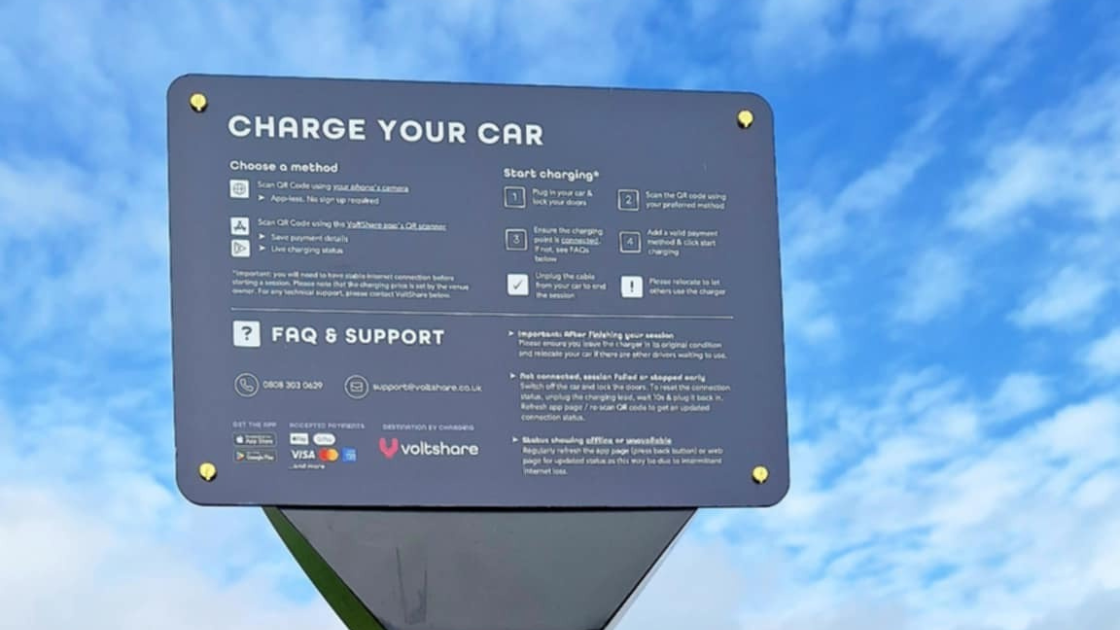Discover how expanding the EV charging network is key to replacing petrol and diesel vehicles and building a sustainable transport future.

Discover why EV charging stations are the smartest property investment for 2025, boosting bookings by 10-15%, generating passive income, and maximising ROI before government grants expire in March 2026.

When property owners first learn about installing EV charging stations, many focus solely on the direct charging revenue and worry about upfront costs. But this perspective misses the bigger picture. EV charging infrastructure isn't just an amenity—it's a strategic investment that transforms your property's marketability, guest appeal, and long-term profitability.
Remember when WiFi was considered a luxury amenity? Today, guests won't even consider a property without it. You don't expect your WiFi installation to pay for itself through direct fees, yet you recognise its essential role in attracting bookings and maintaining competitive rates.
EV charging follows the same principle—with one crucial advantage: it actually can generate direct revenue while serving as a powerful marketing differentiator.
Just like investing in quality furniture, luxury fittings, or high-speed internet, EV charging stations work toward your overall investment strategy. They determine how marketable your property is and, ultimately, how profitable you'll be. The difference? Unlike a expensive sofa or designer lighting, your EV chargers can actively contribute to your revenue stream while attracting the growing segment of EV-driving guests.

For holiday rentals and properties with fewer daily visitors but high overnight guest turnover, EV charging is primarily about securing new bookings and commanding premium rates.
The numbers tell the story: Properties with EV charging see increased booking rates and can charge 10-15% higher nightly rates. With EV adoption accelerating rapidly, properties without charging facilities are increasingly filtered out of search results entirely.
Consider the typical payback scenario: If EV charging helps you secure just 2-3 additional bookings per month at your standard rate, the installation typically pays for itself within 18-24 months. And that's not even taking into account the revenue from EV charging itself, realistically you're looking at a payback time of 6-12 months. After that, it's pure profit enhancement—not to mention the premium positioning in an increasingly competitive market.
For properties with higher daily traffic—restaurants, retail locations, business centres—EV charging offers a powerful double revenue opportunity: new customer acquisition plus recurring passive income.
High-traffic sites benefit from both increased foot traffic and substantial charging transaction revenue. EV drivers typically spend 30-45 minutes charging, creating extended dwell time perfect for additional purchases. Many report that EV charging customers become regular visitors, creating a loyal customer base.
The charging transactions themselves generate significant recurring revenue. Properties in high-traffic areas often see £200-500+ monthly in charging revenue per station, with minimal ongoing effort required. This passive income stream, combined with increased customer visits and longer stays, often delivers payback periods of 6-12 months.
.png)
Here's the urgency factor many property owners overlook: current government grants supporting EV charging installation expire in March 2026. After that deadline, your investment cost increases by up to 75%.
Installing now means:
Properties that wait until after March 2026 will face significantly higher installation costs while competing against early adopters who are already capturing the EV driver market and benefiting from the revenue streams.
EV charging isn't about today's market—it's about positioning for tomorrow's. While some property owners debate whether EV adoption will continue, forward-thinking businesses are already capturing this growing market segment.
The question isn't whether EV charging will become essential (it will), but whether you'll be an early adopter reaping the benefits or playing catch-up at much higher costs.
Your investment timeline:
The properties thriving in five years will be those that recognised EV charging as the strategic investment it is - not just another expense. With grants expiring in March 2026, your window for maximum return on this investment is closing fast.
The choice is simple: Invest smart now with government support, or pay significantly more later while watching competitors capture the market you could have owned.
If you're ready to invest in your businesses future, get in touch with voltshare today.